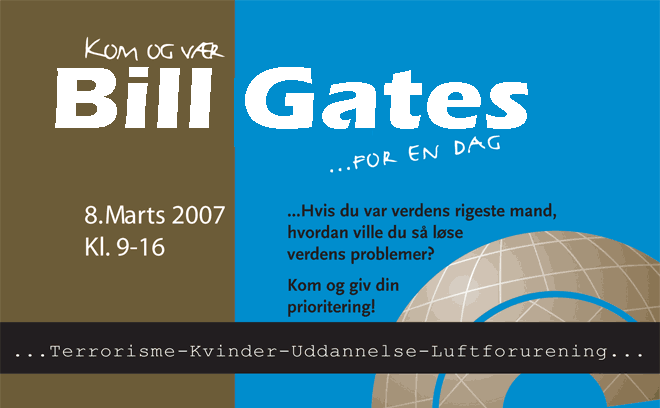Bill Gates for a Day: Terrorism, Linotte
Assessment Paper
By Daniel Linotte
Terrorism is one of the main challenges to security and peace. It became a global problem, and represents a daily menace in many developed and developing countries. Tens of real or hypothetical terror-plot threats and thousands of individuals are under tight surveillance. The human and material costs of terrorism are tremendous. In 2006 only, there were 6,425 terrorist incidents, with 11,886 fatalities – about 75% of them took place in the Middle East/Persian Gulf region.
The 1990’s saw the emergence of religious factors behind terrorism, and a growing recourse to suicide attacks, which exacerbates tensions between civilizations. In particular, religious terrorism opposes the West to the Moslem world, undermines the integration of foreign communities in immigration countries, and stimulates xenophobia in many places. It may lead to international conflicts, and de facto it delays pacification in specific regions. In the long-term, terrorism could reduce the scope for political, social and economic progress in developing countries, enlarge the North-South divide in terms of wealth and income, and weaken democratic rules and human rights in the richer countries.
This text addresses terrorism with a focus on selected economic and policy issues, including a tentative Cost-Benefit Analysis of antiterrorism based on recent quantitative findings. Considering the vast amount of literature on terrorism published after 9/11, a selection of material had to be made, partly relying on personal preferences. It should be made clear that terrorism is a complex phenomenon that combines many factors such as social conditions, minority and majority status, social stratification and mobility, “territoriality”, history, politics, human rights and freedoms, governance and corruption, demographic trends, cultural identity and modernization.
Subsequently, for the sake of effectiveness, economic measures that address terrorism must be designed in the context of broad strategies that integrate other and more important dimensions, which goes far beyond the present work.

